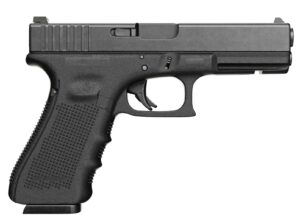 by Dick Hall-Sizemore
by Dick Hall-Sizemore
In an interesting development, one of the so-called “progressive” Virginia prosecutors has identified a direct link between someone committing misdemeanor offenses and later committing violent felony offenses.
The misdemeanor offenses that are predictors are gun offenses. After tracking violent case histories, Ramin Fatehi, the commonwealth’s attorney for Norfolk, as reported by WAVY TV, “found it was often a pretty straight shot between low-level gun misdemeanors and violent gun felonies.” This applied both to folks pulling the trigger and those being shot.
Fatehi mentioned a number of gun misdemeanors, but said that a leading predictor was carrying a concealed weapon without a permit. In the several examples of violent crimes involving guns that he cited, all the perpetrators or victims had prior gun misdemeanor charges. Some of these charges had been dismissed or set aside.
One solution would be stronger prosecution of gun misdemeanor cases. However, Fatehi laments that he does not have the funding to hire enough assistant prosecutors to handle misdemeanor cases (the state does not include misdemeanors in its calculation of how much funding to provide a commonwealth’s attorney’s office). Besides, the maximum sentence for a Class 1 misdemeanor is 12 months in jail. If a gun misdemeanor is a predictor of future violence, incarcerating someone for 12 months is likely to only delay the more serious gun violence.
Another solution would be to increase the penalty for a violation of any gun law to a felony. That would help some, primarily by making the future possession of a firearm a felony and by making it harder to acquire additional firearms in the future. However, at least one of the examples provided by Fatehi, brandishing a firearm, is already a Class 6 felony. Also, the second conviction of carrying a concealed firearm without a permit is a felony. Furthermore, the third conviction of a firearm-related offense constitutes a Class 6 felony.
Under current law, the most effective solution would be aggressive prosecution of misdemeanor gun offenses in district courts, with prosecutors urging judges not to suspend sentences for those convicted. To this end, it is recommended that the General Assembly provide sufficient funding to enable the Commonwealth’s attorney in each jurisdiction with a population exceeding XXXX to have at least one assistant prosecutor assigned to prosecute gun misdemeanor cases in district courts.
After those offenders are released from serving their misdemeanor sentences, further action may need to be taken to limit their future utilization of guns in committing crimes. The state should conduct a comprehensive study to determine whether Faheti’s limited study is valid statewide. If the study determined that a violation of a misdemeanor gun offense is a significant predictor of future gun violence, the state’s existing “red flag” law should be expanded to include convictions for violations of gun offenses. Under those provisions, anyone convicted of a gun offense would have his firearms confiscated and be prohibited from possessing any firearms. In addition, anyone subject to a firearms-related “red flag” would be subject to a search for possession of a concealed weapon.
These steps would not hinder law-abiding citizens from owning firearms while helping to keep guns out of the hands of those who are likely to commit violent gun-related crimes.


